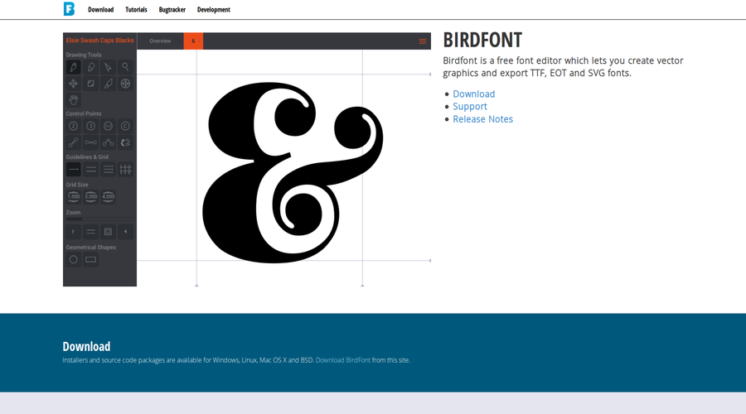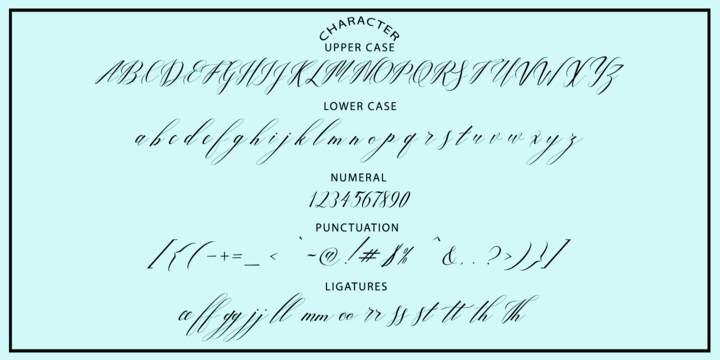

Using such a license ensures the continued usability of a project’s hard earned data beyond the financial, institutional, and temporal bounds of the project itself, thus integrating the work of individual projects into the wider DH collective. And given its etymological background can data (think Latin do, dare) really be held back? While there are many ways to copywrite data these days, the Creative Commons family of licenses provides clarity and simplicity, and would be a welcome addition to any DH project. If data are the lifeblood of computational humanities, restrictive licenses, and even a failure to provide any license at all, is a death sentence.
#BIRDFONT KERNING SOFTWARE#
I see that my old mainstay the Perseus project is using a CC-BY-SA license, which is cool because it allows products like Logos to package the Perseus data into a software platform familiar to their user base. With the explosion of open source everything, the world is becoming more comfortable with “open” data and publicly funded research is thankfully beginning to be required to provide it.

Licensing still applies, and this is one of the main problems plaguing computational humanities projects.
#BIRDFONT KERNING FREE#
There is often a sense that if something is on the internet, it is free for everyone to use, which is not technically correct. Something about having these works appearing on my own computer screen made me feel that I could own these monuments of western learning too, if only in the form of 1’s and 0’s flitting through the aether.īut feeling like one has ownership of those bits of data is not enough. Not only that, Perseus seemed to have all the major works I might want to read available at my fingertips, along with Smyth’s famous grammar, the “middle” Liddell, Lewis and Short, and even the big LSJ-the only thing we need now is the OLD…or the TLL! As a poor kid in a relatively wealthy university, it was empowering to have access to all these resources which I could never dream of acquiring on my own (Sarah, my wife, did eventually buy me Smyth and I got an ancient copy of LSJ when the Semitic library at the Catholic University of America was cleaning its stacks). I remember marvelling at how quickly I could look up words as I was reading Plato or the Aeneid. It was at the turn of the new millennium and I had just begun my Classics studies at Loyola Marymount University in Los Angeles. My first serious encounter with the usage of computers to benefit humanistic research was the Perseus project.

Data are the lifeblood of the computational humanities.


 0 kommentar(er)
0 kommentar(er)
